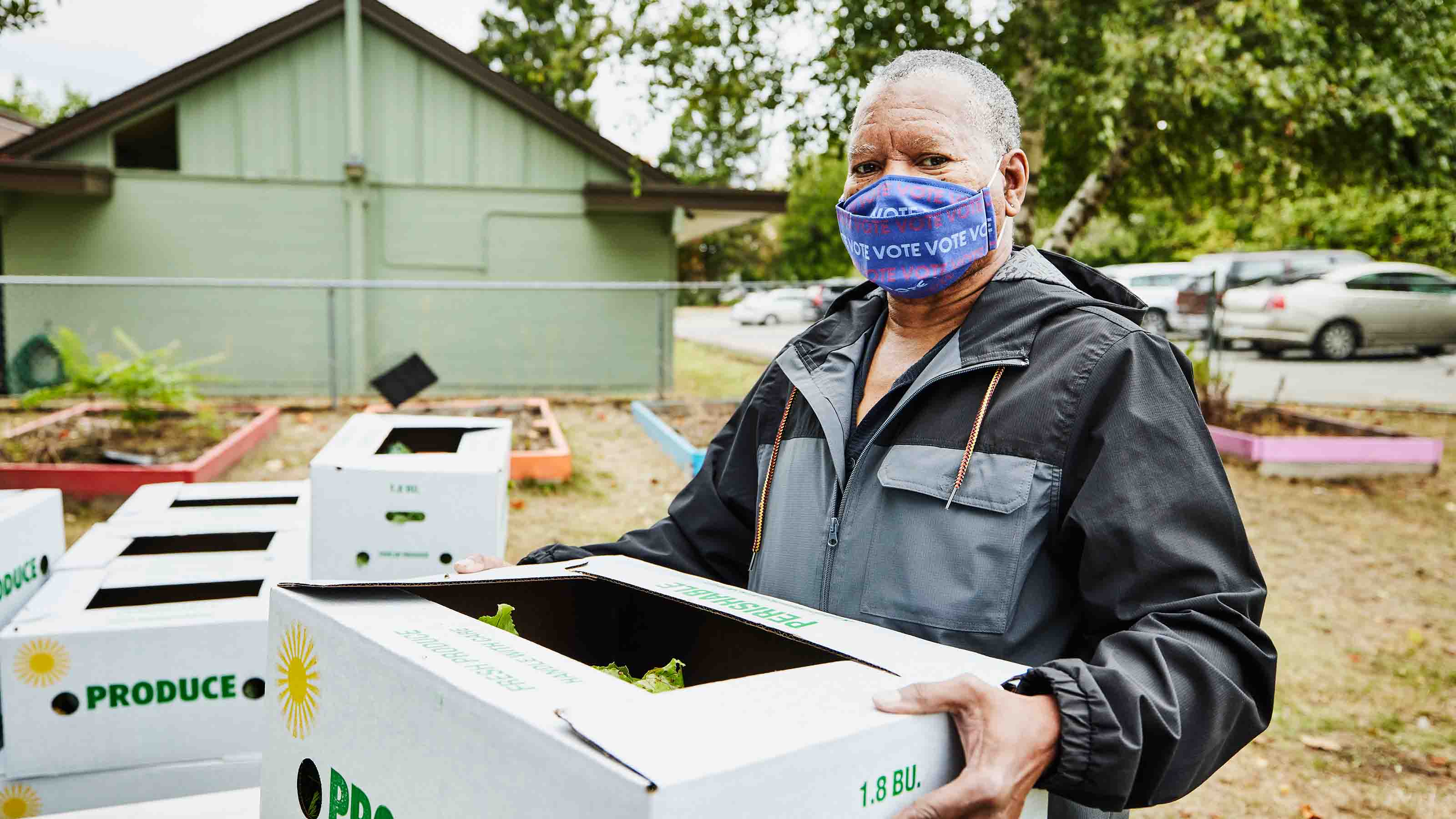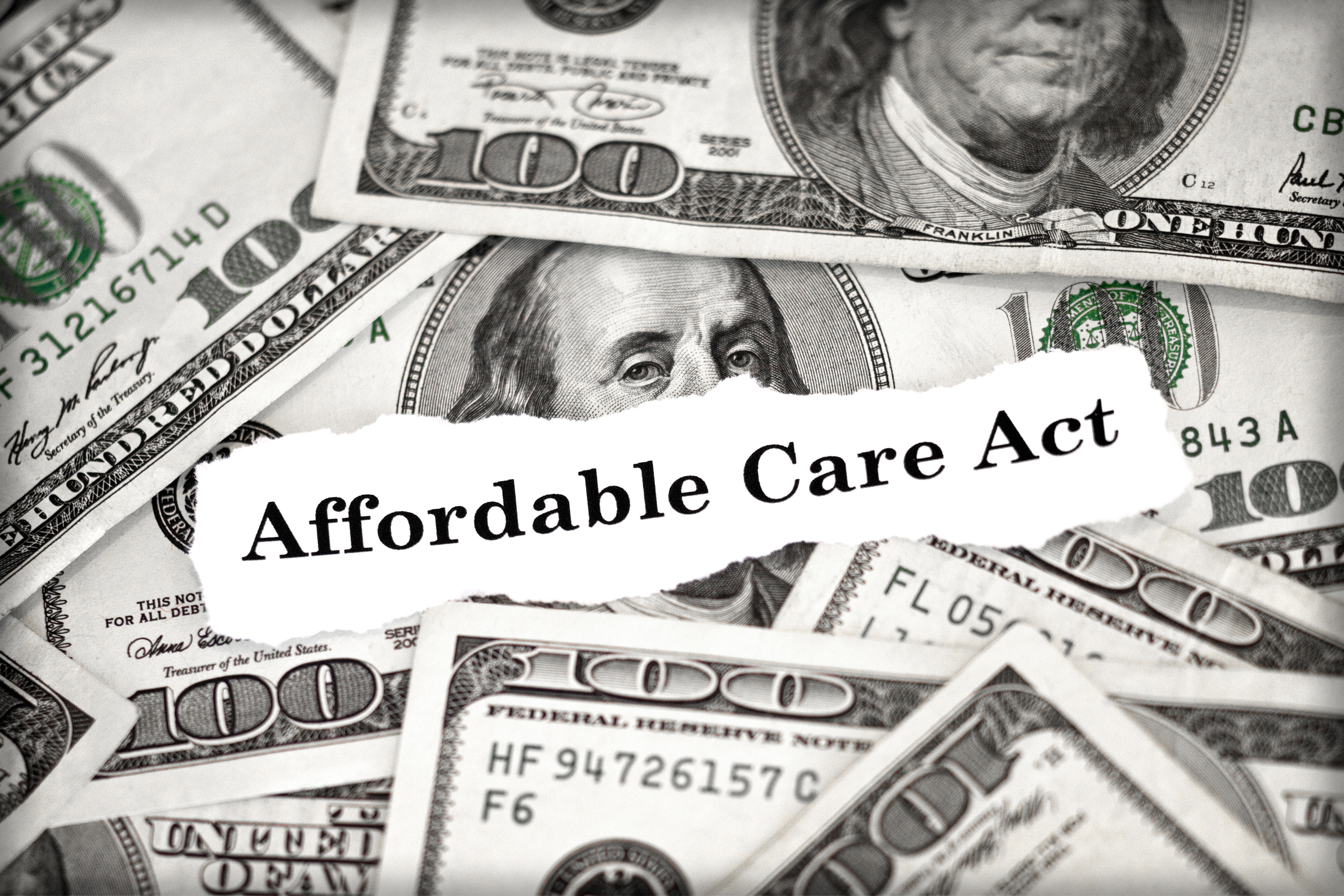Pandemic Aid That’s Still Available
Broad-based stimulus checks and the like are over, but some people still qualify for help.

Profit and prosper with the best of Kiplinger's advice on investing, taxes, retirement, personal finance and much more. Delivered daily. Enter your email in the box and click Sign Me Up.
You are now subscribed
Your newsletter sign-up was successful
Want to add more newsletters?
While available aid for individuals is dwindling, there still are some benefits available to help people affected financially as we enter year three of the COVID-19 pandemic.
These benefits include enhanced healthcare subsidies, aid for food workers and rental assistance. In addition, a moratorium on federal student loan payments has been extended.
It remains unclear whether the Biden administration and Congress will come to an agreement to extend the enhanced child tax credit program. – but there’s also talk on Capitol Hill of new legislation to help businesses such as restaurants, gyms and performance spaces
From just $107.88 $24.99 for Kiplinger Personal Finance
Become a smarter, better informed investor. Subscribe from just $107.88 $24.99, plus get up to 4 Special Issues

Sign up for Kiplinger’s Free Newsletters
Profit and prosper with the best of expert advice on investing, taxes, retirement, personal finance and more - straight to your e-mail.
Profit and prosper with the best of expert advice - straight to your e-mail.
Enhanced Obamacare assistance
Congress increased subsidies for healthcare plans under the Affordable Care Act in the American Rescue Plan Act of 2021. Under this benefit, more people qualify for help in paying for health insurance, meaning lower premiums for many, depending on household income.
This is intended to extend health insurance to a significant portion of uninsured Americans. The benefit is set to expire at the end of 2022, but Congress could extend it or make it permanent. In the meantime, open enrollment ended Jan. 15, so it's too late for many new enrollees this year. But if you have a qualifying event, such as losing a job, you can apply for insurance and under the plan regardless of open enrollment.
Rental Assistance
While there is no longer a federal ban on evictions, struggling renters may still be eligible for federal aid to help them avoid becoming homeless. According to the most recently available Treasury Department statistics, more than 2.5 million renters and landlords had received federal rental assistance aid through local and state agencies as of the end of October. The government expected to spend between $25 and $30 billion by the end of the year out of a total of $46.6 billion provided in two federal relief acts.
The aid covers things like rent, utilities, home energy, trash removal, certain late fees and internet service, as well as moving expenses and other fees related to your rental,
If you’re a renter struggling to make rent or utility payments or a landlord struggling financially, you can apply to a local emergency rental assistance agency. A list of local agencies is available on the website of the Consumer Financial Protection Bureau or you can call 211 or your local housing authority for guidance.
Food Worker Payments
Workers at grocery stores, farms and meatpacking plants may be eligible for $600 assistance payments later this year under the Farm and Food Worker Relief Grant Program. This program will funnel federal funds through state agencies, as well as nonprofit organizations and tribal entities.
These entities are to distribute the funds to workers who spent money “preparing for, preventing exposure to and responding to” the pandemic. A total of $20 million of the $665 million in available funds was to be set aside for grant agreements to benefit grocery store workers.
State agencies and eligible organizations have until March 10 to apply for grants, which are scheduled to be awarded in June. Workers will later be able to apply to the agencies for flat-rate payments of $600. The workers will be required to certify that they incurred costs because of the pandemic, but will not be required to provide itemized receipts.
Enhanced Child Tax Credit
The last — and possibly final — enhanced child tax credit payments went out in December. The current law doesn’t authorize any further advance payments of this tax credit. However, the Build Back Better Act, if passed, would extend the payments for another year. That measure has been passed by the House of Representatives and is awaiting action in the Senate, where West Virginia Sen. Joe Manchin has reportedly expressed opposition to continuing the child tax credit.
The credit enhancements in effect for 2021 were designed as pandemic relief and to reduce child poverty. People with children were potentially eligible for an additional tax credit of $1,000 or $1,600 per child, depending on the child’s age.
Student Loan Deferral
People with federal student loans held by the government have not been required to make payments since March of 2020. In August, the Department of Education extended the deferral until Jan. 31, 2022. And in December, President Biden extended it until May 1.
In addition to deferring loan payments, the government eliminated interest on the loans during this time, meaning the amount outstanding isn’t rising. The government has also stopped collecting defaulted debt.
The deferral can also lower the total repayment requirement for some borrowers, such as those on income- driven repayment plans. The deferred payments will count toward IDR forgiveness. The deferrals do not apply to privately held student loans.
Profit and prosper with the best of Kiplinger's advice on investing, taxes, retirement, personal finance and much more. Delivered daily. Enter your email in the box and click Sign Me Up.
Elaine Silvestrini has worked for Kiplinger since 2021, serving as senior retirement editor since 2022. Before that, she had an extensive career as a newspaper and online journalist, primarily covering legal issues at the Tampa Tribune and the Asbury Park Press in New Jersey. In more recent years, she's written for several marketing, legal and financial websites, including Annuity.org and LegalExaminer.com, and the newsletters Auto Insurance Report and Property Insurance Report.
-
 3 Smart Ways to Spend Your Retirement Tax Refund
3 Smart Ways to Spend Your Retirement Tax RefundRetirement Taxes With the new "senior bonus" hitting bank accounts this tax season, your retirement refund may be higher than usual. Here's how to reinvest those funds for a financially efficient 2026.
-
 5 Retirement Tax Traps to Watch in 2026
5 Retirement Tax Traps to Watch in 2026Retirement Even in retirement, some income sources can unexpectedly raise your federal and state tax bills. Here's how to avoid costly surprises.
-
 Trump's New Retirement Plan: What You Need to Know
Trump's New Retirement Plan: What You Need to KnowPresident Trump's State of the Union address touched upon several topics, including a new retirement plan for Americans. Here's how it might work.
-
 9 Types of Insurance You Probably Don't Need
9 Types of Insurance You Probably Don't NeedFinancial Planning If you're paying for these types of insurance, you might be wasting your money. Here's what you need to know.
-
 Health Insurance Tax Credits and the Government Shutdown: What to Know
Health Insurance Tax Credits and the Government Shutdown: What to KnowTax Credits Previous shutdowns have occurred for various reasons, including border wall funding. But this time, the standoff centered in part on health care and taxes.
-
 Amazon Resale: Where Amazon Prime Returns Become Your Online Bargains
Amazon Resale: Where Amazon Prime Returns Become Your Online BargainsFeature Amazon Resale products may have some imperfections, but that often leads to wildly discounted prices.
-
 End of Expanded Premium Tax Credit Would Drive Uninsured Rates Higher
End of Expanded Premium Tax Credit Would Drive Uninsured Rates HigherTax Credits Millions of people could become uninsured if Congress fails to extend the enhanced premium tax credit.
-
 Over 162,000 Dreamers Cut Off From Affordable Care Act Insurance
Over 162,000 Dreamers Cut Off From Affordable Care Act InsuranceHealth Insurance A federal court in North Dakota has blocked ACA coverage for DACA recipients in 19 states. Here's what it means.
-
 2025 Open Enrollment: Some DACA Recipients Can Purchase Affordable Care Act Health Insurance
2025 Open Enrollment: Some DACA Recipients Can Purchase Affordable Care Act Health InsuranceOpen Enrollment Your eligibility to purchase health insurance from the federal marketplace may have changed. Here's what you need to know.
-
 Roth IRA Contribution Limits for 2026
Roth IRA Contribution Limits for 2026Roth IRAs Roth IRAs allow you to save for retirement with after-tax dollars while you're working, and then withdraw those contributions and earnings tax-free when you retire. Here's a look at 2026 limits and income-based phaseouts.
-
 Medicare, ACA Call Center Workers To Hold Another Protest: What To Know
Medicare, ACA Call Center Workers To Hold Another Protest: What To KnowMedicare and Obamacare call center employees plan another protest, this time in Washington, DC on December 12.